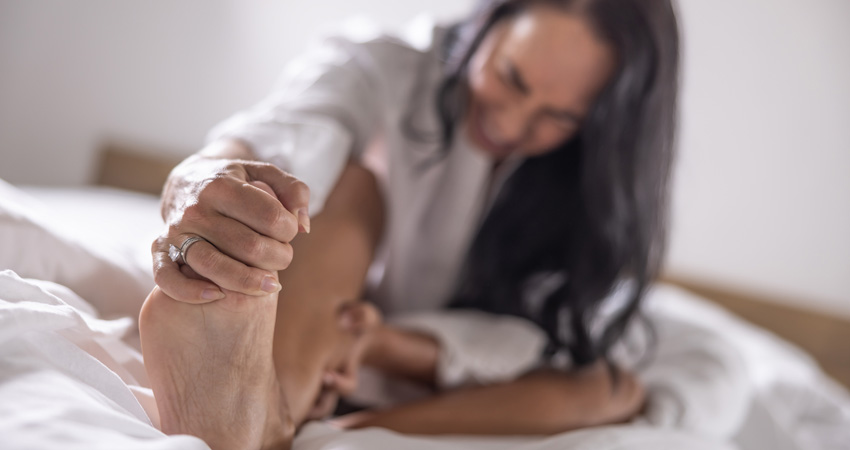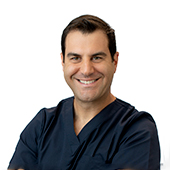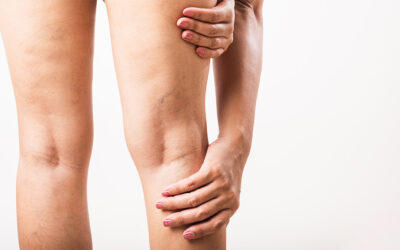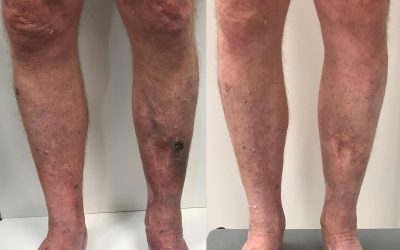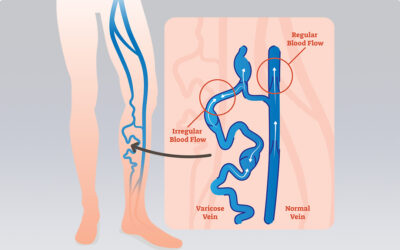Could night-time leg cramps be a sign of vein disease?
Many people experience leg cramps and discomfort at night, but few realise these symptoms might be linked to an underlying venous condition. At Vein Health Clinic, we frequently see patients who are surprised to learn their night-time leg pain is actually caused by venous disease – a diagnosis confirmed only after an ultrasound examination.
Understanding the Connection
When varicose veins develop, they lose their ability to circulate blood effectively due to damaged valves within the veins. This leads to a cascade of effects:
- Blood pools in the legs, particularly at night when lying down
- The pooling causes increased pressure and swelling in the veins and surrounding tissues
- Over time, inflammation develops around the affected veins
- This inflammation can pressure nearby nerves and muscles, triggering those painful night cramps
The Role of Deoxygenated Blood
An often-overlooked aspect of varicose veins is the quality of the blood that pools in these damaged vessels. This stagnant blood is deoxygenated and contains elevated levels of carbon dioxide and waste impurities. When this oxygen-poor blood leaks into surrounding tissues, it can contribute significantly to muscle cramping and discomfort. Think of it as your muscles being surrounded by blood that lacks the oxygen and nutrients they need for proper function, leading to inefficient muscle performance and increased likelihood of cramping.
Why Night-time Makes It Worse
Have you noticed your leg discomfort intensifies at night? There’s a reason for this. During the day, you’re typically active and distracted, and walking helps circulate blood (even if inefficiently). However, when you’re at rest, there are no distractions from the discomfort, and the effects of blood pooling throughout the day become more noticeable.
Beyond Leg Cramps
Varicose veins can cause various other symptoms, including:
- Leg heaviness and tiredness
- Lower leg and ankle swelling
- Itchiness around affected areas
- Skin changes such as dermatitis
- In severe cases, ulceration and skin thickening
Managing Night Cramps
While seeking professional treatment is crucial for long-term relief, several strategies can help manage night cramps:
- Stay active during the day to promote better blood circulation
- Wear medical-grade compression stockings
- Engage in regular exercise like walking or swimming
- Perform gentle leg stretches before bed
- Elevate your legs while sleeping
- Consider manual lymphatic massage
Taking Action
If you’re experiencing persistent night cramps or other symptoms mentioned above, it’s important to seek proper assessment. At Vein Health Clinic, we offer comprehensive ultrasound examinations to determine the extent of any venous disease and can recommend appropriate treatment options to address both the underlying cause and symptoms.
Remember, treating varicose veins isn’t just about addressing current discomfort – it’s about preventing the progression of chronic venous disease and its potential complications. Don’t let night cramps affect your quality of sleep and daily life when solutions are available.
Key Takeaways:
- Night cramps can be a sign of underlying varicose veins
- Deoxygenated blood containing elevated carbon dioxide and waste impurities contributes to muscle cramping
- The condition is diagnosable through ultrasound examination
- Several self-management strategies can provide relief
- Professional treatment can address both symptoms and underlying causes
- Early intervention helps prevent more serious complications

